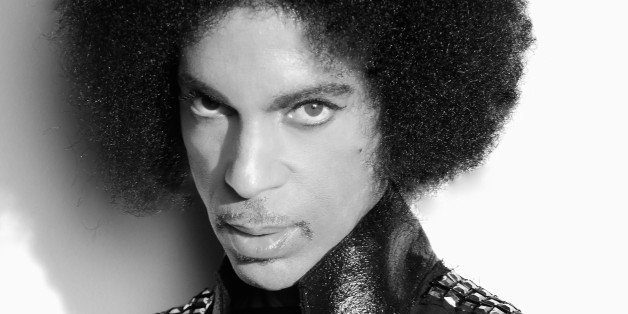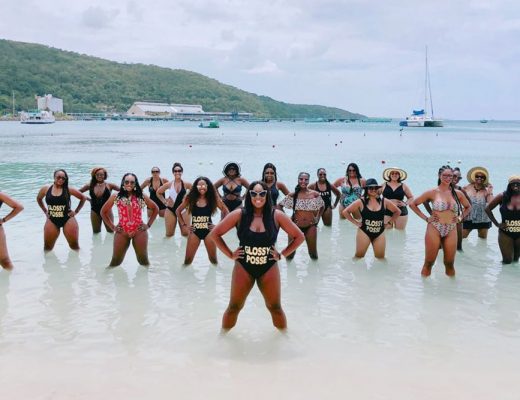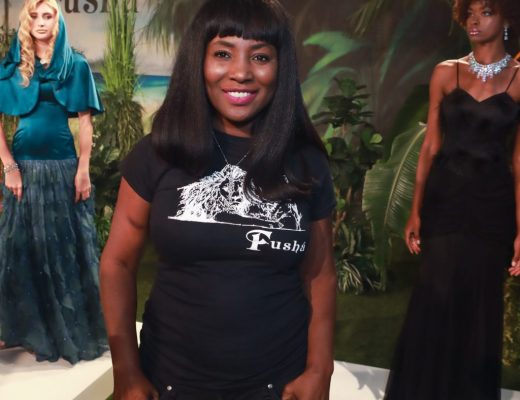People use the phrase “larger than life” idiomatically — but with Prince, it was a factual data point. If you saw him live, you sensed it. If you watched his incredible Super Bowl performance, you felt it.
I didn’t grow up in a Prince household. His risqué lyrics and movements coupled with my young age and strict West Indian parents, meant that Prince was off-limits. Michael Jackson, the child prodigy from Motown who had grown up before the world’s eyes, was a much better fit in our home and I grew up with little knowledge of Michael’s freaky, frenetic, dangerously-undefinable contemporary. Whether it was an intentional choice on my parents’ part or a subconscious leaning, Prince music wasn’t played in our home and his face wasn’t discoverable when I studied the glossy covers in my dad’s album collection. Prince was not readily accessible to me, but one glorious day, I discovered him on my own. (Thanks, MTV.)
My first conscious recollection of him: on our television screen in the living room prancing, cavorting and singing “I just want your extra time, and your kiss.” Upon first impression he seemed welcoming, fun-loving — even sweet. What wasn’t sweet? That mean guitar riff intro that transitioned shockingly into a funky, syncopated baseline and permeated right to my tiny, little heart strings. Even at a time when there was so much quality music to choose from, he stood out immediately. My silly girlish crush told me I wanted to marry Michael Jackson when I grew up, but I couldn’t take my eyes off of Prince. And that was pretty much the case every time I saw Prince thereafter: from the Batman soundtrack (intense!), “Diamond and Pearls” (soulful!), “Cream” and “Gett Off” (funky!), “7” (mysterious!), “The Most Beautiful Girl in the World” and “Call My Name” (romantic!). Through each musical incarnation, I never took my eyes off of him.
By the mid-90s, I’d familiarized myself with Prince’s earlier works. VH-1 played the “When Doves Cry” video regularly. That initial scene with the double doors, the doves, and the bathtub had me spellbound — as did the song’s opening chords. The image of the crying eyes was creepy and yet compelling at the same time. My older brother would play old school Prince in the car sometimes; when he did, I dissected every word. “I want to be your mother/ I want to be your brother and your sister too…” I was struck by the contradiction that existed in that line, and this realization would be the first of many where Prince was concerned. In “Raspberry Beret,” his love interest “walks in through the out door.” The song “If I Was Your Girlfriend” finds Prince asking his love interest if he could be her girlfriend, help her pick out her clothes and basically “do all of things that only a best friend can.” And he makes it clear in “I Would Die 4 U” that he can’t be boxed in: “I’m not a woman, I’m not a man/ I am something that you’ll never understand…”
Looking back now, this is one of the greatest lessons I’ve ever derived from Prince’s music. In life, everything won’t fit into the crisp, neat borders we go to such painstaking lengths to create. And the more comfortable I’ve become with that reality, the more palatable Prince’s contradictions and dualities have become. He seemed to innately understand and make peace with ambiguity early in his life. He was completely comfortable dwelling in the inexplicable, the indescribable, the undefinable. While many clamored for classifications and clung to stereotypes for safety, Prince always seemed to dwell far above that cacophony, marching to the beat of his own drummer, pianist, guitarist (just name an instrument, he basically played them all).




No Comments